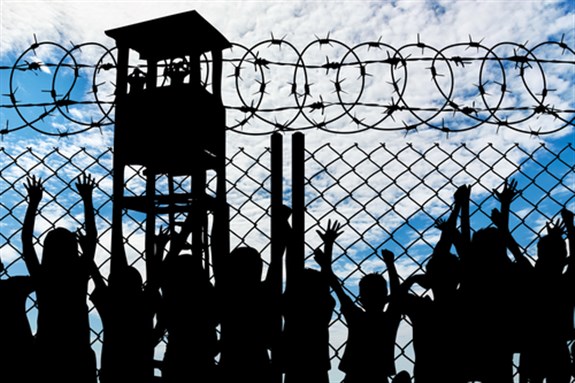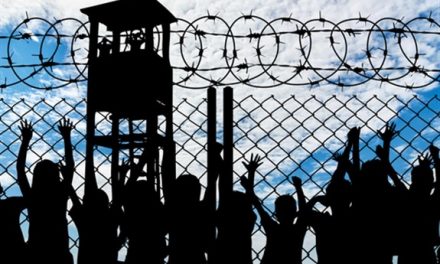Seemingly overnight Europe is confronted with a phenomenon already being experienced in Amman, Damascus, Beirut, Gaziantep and other cities in the Middle East: large numbers of desperate refugees fleeing war, destruction and economic destitution.
The policy response of Turkey, Jordan and Lebanon to this influx has come under deserved scrutiny. Still, whatever their faults these countries have hosted millions of refugees despite, in the cases of Lebanon and Jordan, strained resources and weak infrastructure. Fifty-five percent of the world’s refugee population today resides in the Middle East, making it home to the largest concentration of refugee populations globally. These include Palestinians, Sahrawis, Syrians and Iraqis, as well as Yemeni, Sudanese, and Somali refugees.
The response in much of Europe has been radically different than that in the Middle East. Several European states have shut their borders, forcing refugees to re-route elsewhere, and in some cases even halted domestic public transport networks to prevent refugees from traversing their territory. Together with the dramatic and horrifying images emanating from the shores of the Mediterranean, these policies have put the policies of governments and international organizations alike under increased scrutiny, and led to greater public pressure to provide a meaningful response.
To obtain further clarity on these issues, Jadaliyya asked four specialists on refugee issues to put recent developments in context and offer their views on how this crisis should be addressed.
Participants:
Susan M. Akram is a Clinical Professor of Law at Boston University School of Law. Her academic interests include immigration law, refugee law, and domestic and international refugee advocacy. She worked as an immigration lawyer before joining Boston University’s faculty in 1993, serving as the founding executive director of Boston’s Political Asylum/Immigration Representation Project and the immigration project at Public Counsel, a public interest law firm in Los Angeles. She has taught as a Fulbright Scholar at Al-Quds University’s School of Law, and as a visiting professor at the American University of Cairo’s Forced Migration program. She has guest-lectured at Birzeit University’s law center, at the Oxford Refugee Studies Centre, and at the Graduate Institute at the University of Geneva. Her publications includeInternational Law and the Israeli-Palestinian Conflict: A Rights-Based Approach to Middle East Peace, (S. Akram, M. Lynk, I. Scobbie, & M. Dumper, eds. Routledge Press, 2010).
Yazan al-Saadi is a native of the West Asian (Middle East) region. Based primarily in Kuwait, Yazan has lived, studied and worked in three continents. He is a freelance writer and researcher with interests in a number of subjects from pop-culture to politics, sociological issues to economic theories. He is currently an editor and writer for the online blog Kabobfest and a correspondent for the Lebanese newspaper, Al Akhbar English. Yazan holds a Bachelor’s (Honors) degree in Economics and Development Studies from Queen’s University, Canada and a Masters of Arts in Law, Development, and Globalization from the School of Oriental and African Studies.
Moe Ali Nayel is a freelance journalist based in Beirut, Lebanon.
Angela Joya is an Assistant Professor of Political Science in the Department of International Studies at Oregon University. Dr. Joya`s research focuses on the impact of economic globalization on the Middle East and North Africa with a particular focus on Egypt and Syria. Her articles have appeared in academic journals such as: Review of African Political Economy, Research in Political Economy, and Middle Eastern Studies. She has contributed book chapters to Confronting Global Neoliberalism: Third World Resistance and Development Strategies (edited by Richard Westra, Clarity Press, 2011) and Empire’s Ally: Canada and the War in Afghanistan (edited by Jerome Klassen and Greg Albo, University of Toronto Press, 2013). She is currently preparing a manuscript tentatively titled The Political Economy of Egypt under Mubarak: Accumulation by Dispossession, Land Relations and Class Reconfigurations. In other research, Dr. Joya is examining the role of Islamist opposition parties and their struggle for power in Egypt and Syria. She has conducted fieldwork in Egypt, Palestine, Jordan and Turkey.








